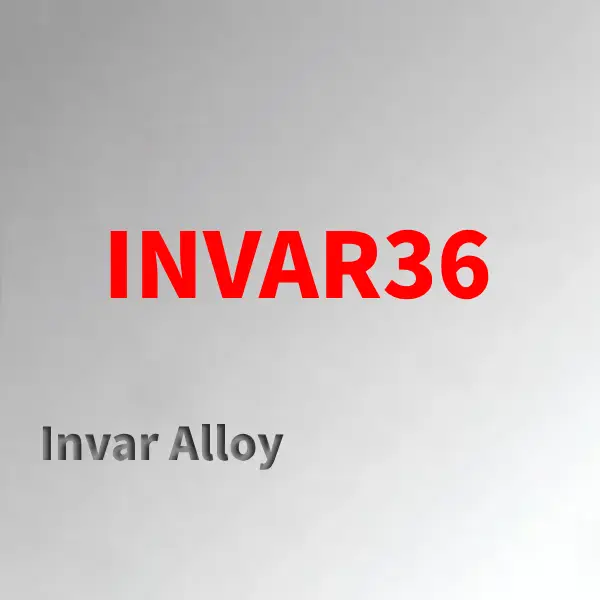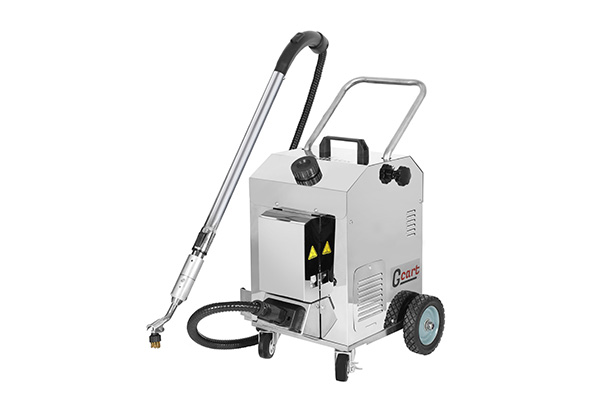Invar alloy is a critical material in advanced manufacturing thanks to its exceptional dimensional stability and ultra-low thermal expansion. Industries such as aerospace, medical equipment, electronics, and precision tooling depend on Invar alloy to deliver parts that maintain accuracy even in fluctuating temperatures. For manufacturers, mastering the processing of Invar alloy ensures high-quality outcomes and competitive advantage. This guide explores the key processing techniques, challenges, and applications of Invar alloy — highlighting how Hangrui (Shanghai) Advanced Materials Technology Co., LTD. delivers cutting-edge Invar alloy powder and solutions for modern industry needs.

1. Understanding Invar Alloy: Composition and Unique Features
Invar alloy (often referred to as Invar36 or Fe-Ni36) is primarily composed of about 64% iron and 36% nickel. Its standout characteristic is an ultra-low coefficient of thermal expansion, typically ranging from 1.2 to 1.8 ×10⁻⁶/°C across -250°C to +200°C. This property allows components made from Invar to maintain size and shape in extreme temperature environments. Additionally, Invar offers good ductility, moderate strength, corrosion resistance, and low magnetic permeability. These qualities make it a preferred choice for applications where thermal stability and mechanical reliability are essential.
2. Key Material Properties Influencing Processing
Processing Invar alloy requires careful consideration of its physical and mechanical properties:
-
Thermal Expansion: The very low thermal expansion reduces dimensional changes but also makes the material sensitive to thermal gradients during processing.
-
Mechanical Strength: Tensile strength ranges from 490 to 680 MPa in annealed state, with yield strength above 240 MPa.
-
Machinability: While Invar is generally machinable, heat generated during cutting can cause work hardening, requiring controlled speeds and cooling.
-
Corrosion Resistance: Invar resists oxidation and corrosion in ambient conditions, but proper handling during manufacturing is still critical.
3. Common Processing Challenges and Solutions
Invar alloy’s unique properties introduce challenges that manufacturers must address:
-
Welding Distortion: Low thermal conductivity causes heat concentration during welding, leading to distortion. Using precise TIG or laser welding techniques with post-weld stress relief is vital.
-
Machining Work Hardening: Excessive heat during cutting can harden the surface, increasing tool wear. Employing carbide tools, low cutting speeds, and effective coolant flow helps mitigate this.
-
Stress Cracking: Improper heat treatment or excessive residual stresses can cause cracking. Controlled annealing processes are necessary to relieve internal stresses.
4. Effective Machining Practices for Invar Alloy
To maximize quality and tool life during machining:
-
Use carbide cutting tools and maintain low to moderate cutting speeds.
-
Apply consistent cooling and lubrication to control temperature and flush away chips.
-
Minimize depth of cut to reduce surface hardening effects.
-
Utilize CNC machining centers with precise control to maintain tight tolerances.
Hangrui’s manufacturing partners leverage advanced CNC machining techniques to produce Invar parts with reliable geometry and smooth surface finishes, supporting clients across aerospace and electronics sectors.
5. Advanced Welding Techniques
Welding of Invar components demands precision:
-
Tungsten Inert Gas (TIG) welding is commonly used for thin sections.
-
Laser welding offers high precision and minimal heat-affected zones for complex assemblies.
-
Following welding, stress relief heat treatment at around 315–370°C significantly reduces distortion and cracking risks.
These methods, paired with Hangrui’s expert engineering, ensure strong, dimensionally stable welds suitable for demanding applications.
6. Heat Treatment and Stress Relief
Heat treatment plays a pivotal role in stabilizing Invar alloy components:
-
Post-processing annealing alleviates residual stresses accumulated during machining or welding.
-
Precise temperature control during heat treatment is essential to avoid microstructural changes.
-
Hangrui implements standardized heat treatment protocols monitored by advanced sensors to ensure batch-to-batch consistency.
7. Surface Finishing and Inspection
Achieving optimal surface quality and dimensional accuracy involves:
-
Grinding and polishing to attain mirror-like surfaces needed in optics and aerospace.
-
Using coordinate measuring machines (CMM) and optical metrology for precise dimensional verification.
-
Employing cleanroom packaging to protect sensitive components during shipping and storage.
Hangrui supports these finishing steps to ensure parts meet or exceed stringent industry specifications.
8. Primary Applications of Invar Alloy
Invar’s unique combination of low expansion and mechanical reliability make it invaluable in:
-
Aerospace engine parts and structural components requiring thermal stability.
-
Precision molds and measurement instruments in industrial manufacturing.
-
Electronic devices such as microwave circuit components and hermetic seals.
-
Medical instruments including MRI components and surgical tools.
9. Why Choose Hangrui for Invar Alloy Solutions
Hangrui (Shanghai) Advanced Materials Technology Co., LTD. stands at the forefront of advanced materials manufacturing. With three large-scale plants and a strong R&D team, we deliver high-quality Invar36 metal powders optimized for additive manufacturing and traditional processing. Our commitment to sustainable practices and customer collaboration ensures reliable material performance and continuous innovation.
From raw powder production to engineering support for processing, Hangrui offers comprehensive services tailored to your precise requirements. Our expertise enables customers to unlock the full potential of Invar alloy in their advanced manufacturing projects.
Invar alloy remains a cornerstone of precision engineering, and processing it correctly ensures outstanding performance in critical applications. By partnering with Hangrui, manufacturers gain access to premium materials and expert guidance, helping them create components that meet today’s most demanding standards. Let us help you harness the power of Invar alloy and elevate your manufacturing capabilities to the next level.
www.powdmax.com
Hangrui (Shanghai) Advanced Materials Technology Co., LTD.

